Almost 10 years separate this “Coronet Juniper” from “Longhena” (2014), so, like many, I was waiting for this Technical grindcore and extreme machine to return with a new album. In addition to mentioning that the band was one of the very few since the beginning of the 2000s that presented something different and with a lot of personality. Because, although “Amber Gray” (2008) took 8 years to be released or see the light, the music always followed the most accelerated and technical approach in its ideas, and obviously with that detail of personality that at the beginning of the 2000s There were few bands that could pass the “originality” hurdle. So Gridlink is back for those who expect that corrosive, technical, and brutal sound in the whole concept of the word. For this reason, Metallerium presents an interview with Jon Chang, vocalist of the band.
Para leer la entrevista en español: Entrevista a Gridlink
Metallerium: Welcome Jon to the pages of Metallerium. It's a great pleasure to talk to you about the band, this new album, and more things related to the metal world. We will start by asking, what were the reasons why Gridlink took almost 10 years to release a new album?
Gridlink: Our songwriter, Takafumi Matsubara, experienced a significant health event that affected the dexterity in his hands, and prevented him from playing guitar for a long time. After years of physical therapy, Takafumi recovered from the use of his hands and relearned to play guitar again. In 2021, he and I discussed the possibility of creating a new album, and after consulting Bryan in 2022, we officially began work on Coronet Juniper
Metallerium: Talking a little more about this "Coronet Juniper". When did you start working on this new album? And maybe the pandemic accelerated the recording, composition, etc. process a little more?... Because many artists had time to dedicate to making music due to the pandemic.
Gridlink: It happened organically. Takafumi wrote songs at his own pace, then fed them to the rest of the band.
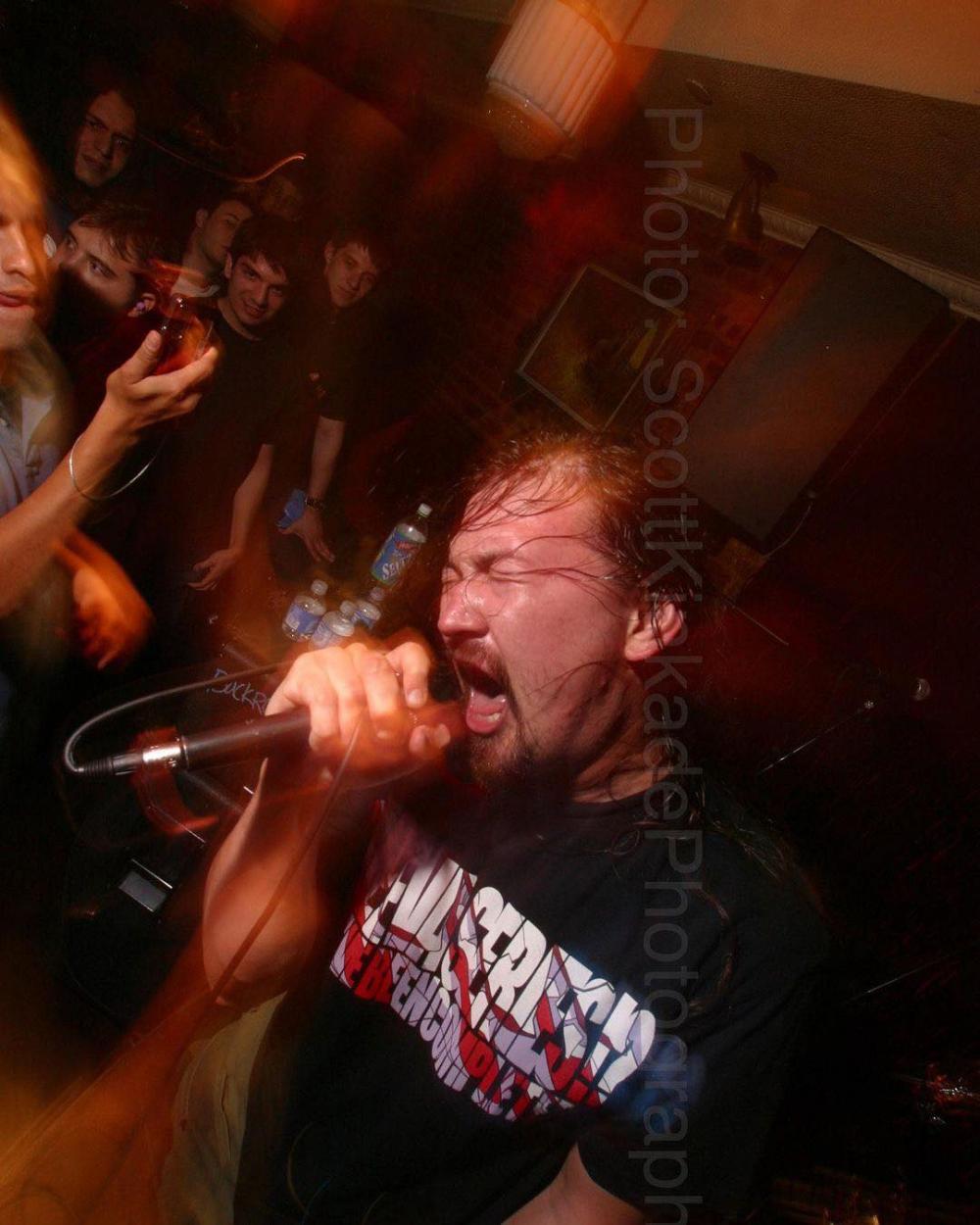
Metallerium: Gridlink appeared in the world when New Metal was dominating all the press worldwide, and on top of all that you and Takafumi come from another metal context, not the American one. How did the idea of forming Gridlink come about in the early 2000s in a world where the extreme was placed below the main news? And were there influences from bands from Asia or Japan such as Catasexual Urge Motivation or Clotted Symmetric Sexual Organ in your formation?
Gridlink: I met Takafumi on the last Discordance Axis tour of Japan in 2001. We later became pen pals and decided to start a heavy metal band, Hayaino Daisuki. GridLink was a side effect of that project. As to the bands you mentioned, neither of us have ever heard of them. GridLink owes more to bands like Galneryus or Rainbow vs any other music.
Metallerium: A detail that becomes obligatory within technical bands is that when they use high doses of technical music, the bands usually start talking about science fiction and abstract things involved. Which often makes it seem like a trend at some points. Do you think that when making highly technical music the lyrics have to have this science fiction concept? And do the names of the albums have relationships with concepts from existing science fiction movies, books, and comics? Or does everything belong to the personal world created for Gridlink? And is there a relationship between the 4 albums?
Gridlink: There is a thematic relationship between all the albums that is more pronounced from Orphan to Longhena to Coronet Juniper. Orphan is where we found our voice, and that was refined in both Longhena and Coronet. The core themes of the band, as developed by myself and Takafumi, are present in l manga, comics, older anime, and certain bullet hell games, but inspired more by life experience.
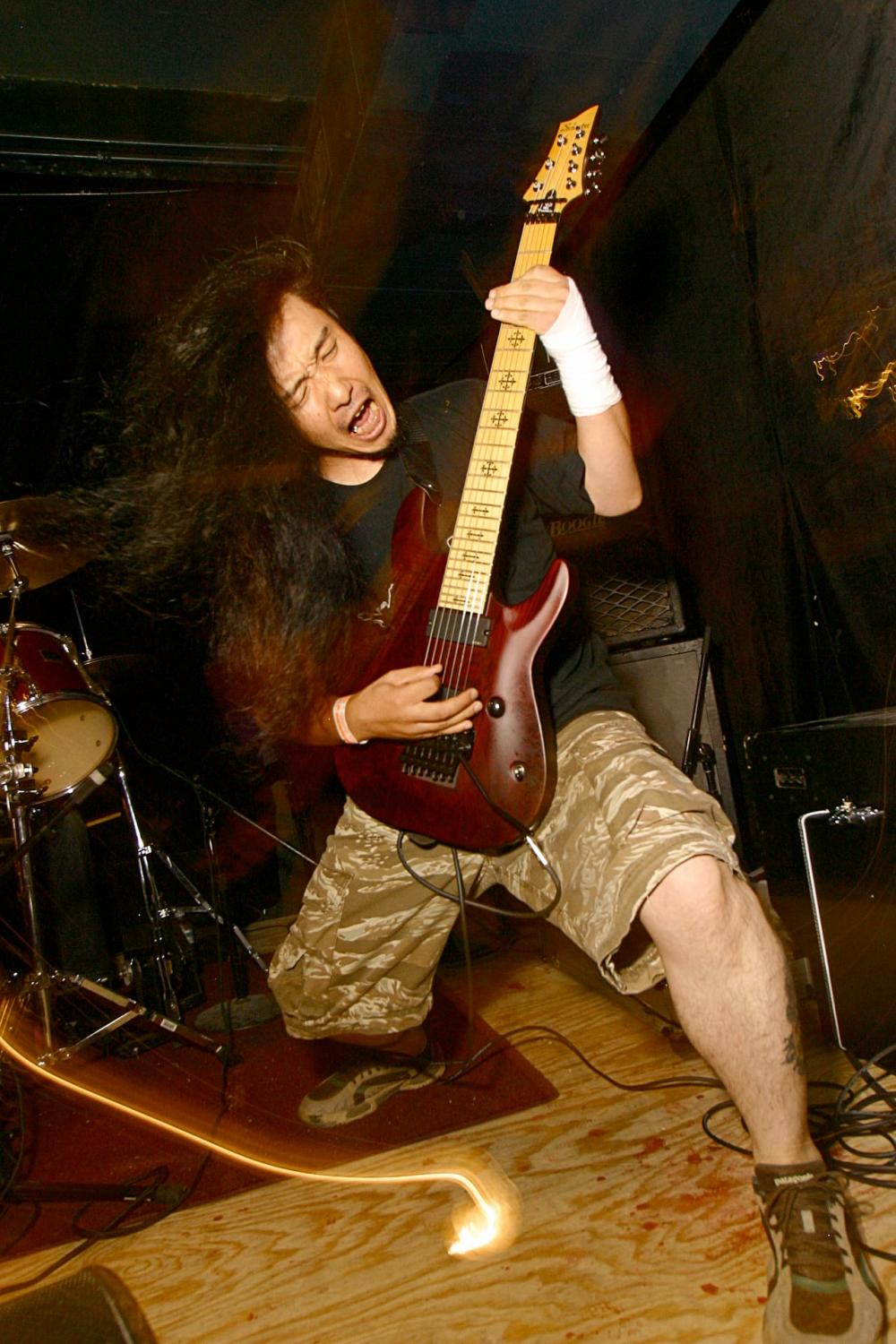
Metallerium: Going back to "Coronet Juniper" I see that the band decides to place the 11 songs in a normal way and the other songs 11 songs are the same within a karaoke concept. Why did you decide to do it this way on your fourth album? And did you plan to add a toy microphone as a souvenir of the new album? 😊
Gridlink: Karaoke tracks as a bonus used to be very common on Japanese heavy metal albums. We adopted our practice directly from those style records.
Metallerium: For me, Gridlink was always a band that was not on the cover of many well-known media, and I see that bands like Full of Hell, Mumakil, Wormrot, and new bands appear among the most recommended within the Grindcore scene nowadays. So, why do you think the band isn't appearing in new proposals within the Grindcore scene? Because as I said in my review, you have a greater personality than those mentioned.
Gridlink: I feel our work is very challenging as it doesn’t offer what most people are looking for in our “genre”. Layering melancholy and other emotions with melody into grindcore defies what most audiences want from a grind record. Alternatively, GridLink can be totally overwhelming for people who are looking for a more involved songwriting experience.
Our lyrics and art are allegorical and threaten people who want easy-to-understand meaning from their music. There’s no chorus to sing along to. There’s no simple message to applaud. There’s no rule that we follow other than the music needs to be fast as a baseline. When I consider all of that, GridLink is just fundamentally difficult music to relate to. At the end of the day. GridLink reflects the lives of two men in their 50s, living on opposite sides of the world, who were compelled to work together because they were unable to find what we needed anywhere else.

Metallerium: We're very close to finishing this interview, Jon, so. What are the future plans that the band has for this new album? Videos, maybe more albums, or who knows.
Gridlink: Takafumi is working on a new album, however, I’m not sure if it will be a GridLink album.
At this time, I am planning to step away from music again. I run several different design shops, and my time is really stretched thin. Given those commitments, I don’t like to work on projects where I cannot devote the time necessary to meet my own standards of excellence. I am fortunate to have an audience who appreciates and supports my endeavors. I never want to take that for granted and turn in something that I would consider, mediocre.
Metallerium: One day I read an article about how free will in entertainment is controlled or directed by big capital and algorithms. And it's not like in the 80s and 90s anymore that you liked something because of the cover or because you just found it attractive. Within that article, it was said that free will is lost, especially for the new generations who are looking for whatever they are on YouTube and Google asking for answers. So, do you think that free will within the area of entertainment is lost? And how does this issue of algorithms affect your vision of making music?
Gridlink: It has always been difficult to find new things, but it has always been possible. What you are describing is laziness and entitlement. No one is going to serve an audience what they want, especially if what they are searching for is outside of mainstream/herd tastes. Google, Facebook, YouTube, etc. have done nothing but make people less thoughtful and more passive. YT relies on an audience that seeks opinions or the experiences of others, rather than exploring things for themselves and forming their own ideas based on those experiences.
Spending personal effort and investing in discovery is far more rewarding than spending time on social media. If a person cannot find what they are searching for, then they need to make that thing themselves.
Creating anything is an investment of sweat, learning, human relationships, and often money. Truly good work should not require the validation of others. The reward is making the thing with your own hands or in collaboration with others to deliver on your vision.
Learning to cooperate is a vital part of the human experience that is slowly being replaced with narcissistic entitlement. I feel this is a large part of why human relationships are coming apart in general.
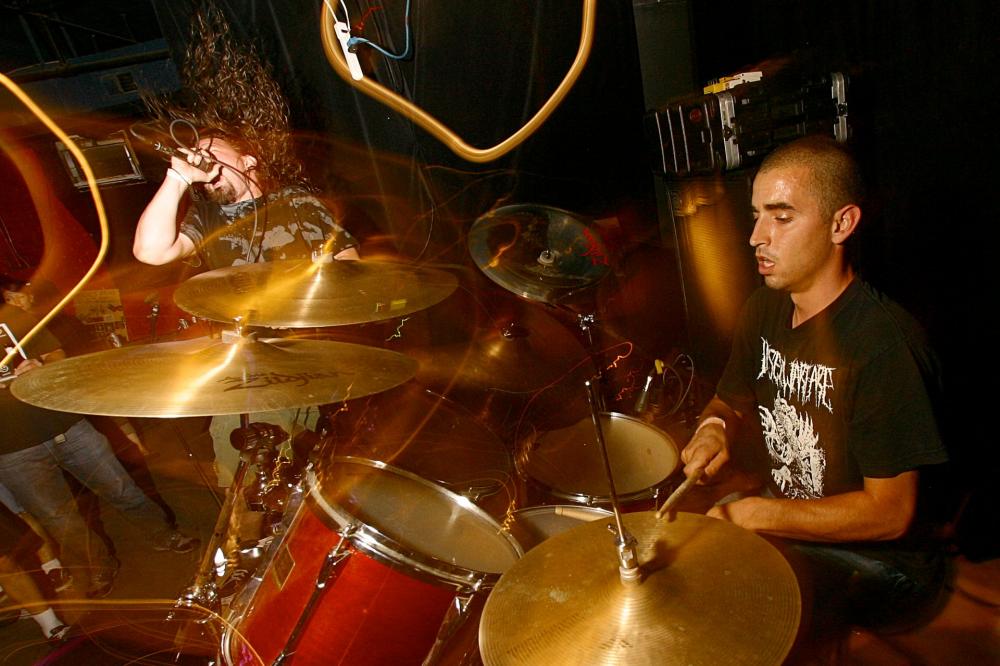
Metallerium: I remember that a few months ago I spoke with Keijo from Rotten Sound, and last year I spoke with Jani from Inferia. I asked them the following: Why do Grindcore and its branches always have to last seconds and up to a maximum of 2 minutes? Do you think grindcore albums can be made with 5-to-7-minute songs? or 40-to-60-minute albums?
Gridlink: When I was younger, I devoted a fair amount of energy to being “true to the genre”. I wasted my time and energy even concerning myself with what was/wasn’t grind. As an adult, I can say it’s pointless to worry about the trappings of any genre. If your work takes you to a place, follow it. Whether or not it costs you your audience shouldn’t matter. Art is not a commodity. It should not be treated as such.
Metallerium: Well, Jon, the sad moment came in this interview. Congratulations on this new album, it's great. I hope you liked the interview and maybe you have something to add to your Latin fans and Metallerium readers.
Gridlink: While all the other members have other musical endeavors - I spend a lot of mine making graphic novels, 28mm miniature wargames, and my new menswear collection.
We all live very different lives. Thanks again for your interest.

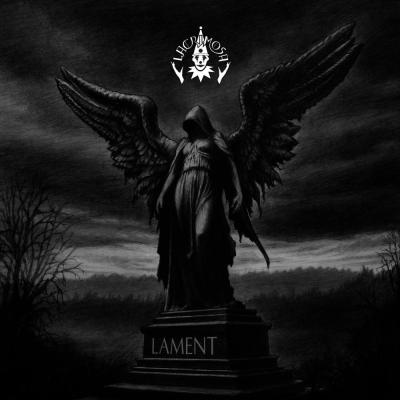 Lacrimosa - Lament - 2025
Lacrimosa - Lament - 2025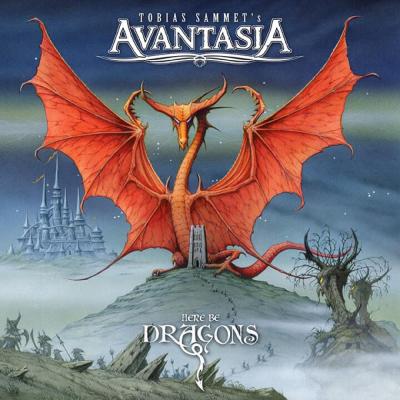 Avantasia - Here Be Dragons - 2025
Avantasia - Here Be Dragons - 2025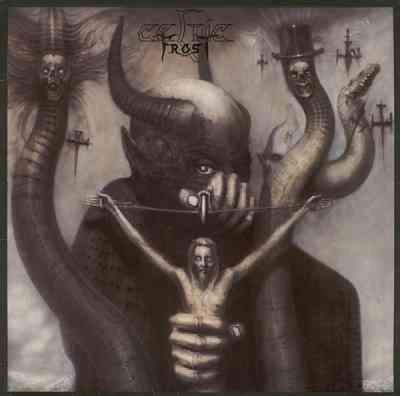 Celtic Frost - To Mega Therion - 1985
Celtic Frost - To Mega Therion - 1985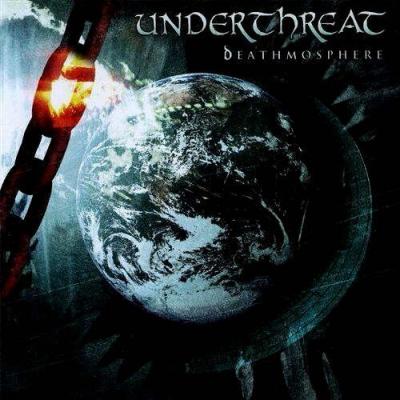 Under Threat - Deathmosphere - 2006
Under Threat - Deathmosphere - 2006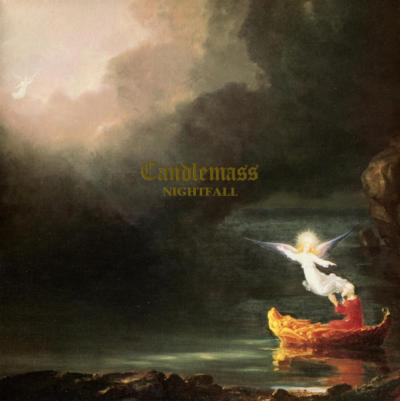 Candlemass - Nightfall - 1987
Candlemass - Nightfall - 1987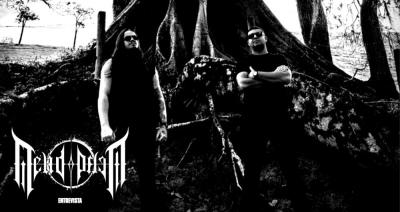 Entrevista a A Dead Poem
Entrevista a A Dead Poem Entrevista a Patriarkh (Bartłomiej Krysiuk)
Entrevista a Patriarkh (Bartłomiej Krysiuk)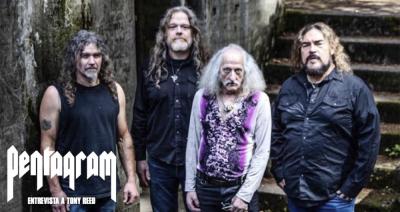 Entrevista a Pentagram (Tony Reed)
Entrevista a Pentagram (Tony Reed)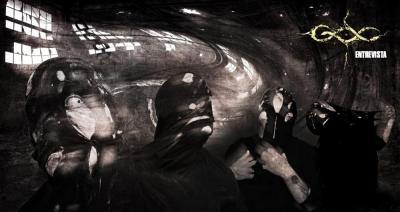 Entrevista a G. O. C. (Atanh)
Entrevista a G. O. C. (Atanh)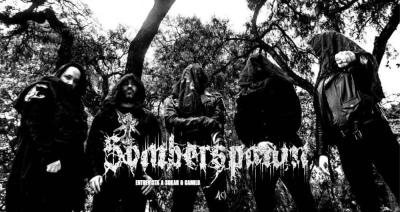 Entrevista a Somberspawn (Sokar & Camilo)
Entrevista a Somberspawn (Sokar & Camilo)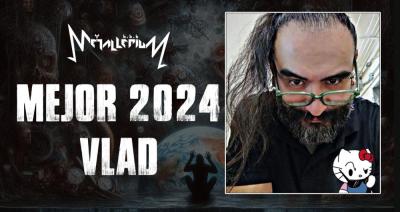 Lo mejor del 2024 según Vlad
Lo mejor del 2024 según Vlad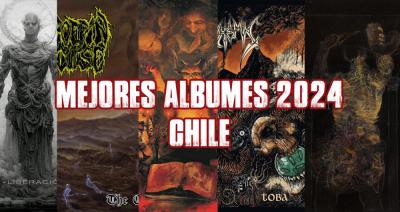 Lo mejor de Chile 2024
Lo mejor de Chile 2024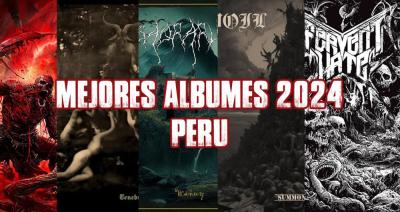 Lo mejor de Perú 2024
Lo mejor de Perú 2024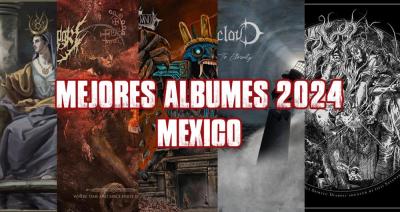 Lo mejor de México 2024
Lo mejor de México 2024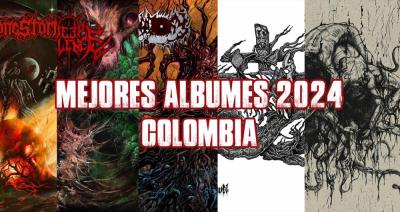 Lo mejor de Colombia 2024
Lo mejor de Colombia 2024 Nunslaughter presentan sencillo principal de nuevo álbum Satanic Chaos Legions
Nunslaughter presentan sencillo principal de nuevo álbum Satanic Chaos Legions
 The Great Observer presentan nuevo sencillo The Great Observer de nuevo álbum Loss of Transcendence
The Great Observer presentan nuevo sencillo The Great Observer de nuevo álbum Loss of Transcendence
 Requiem in White presentan nuevo sencillo Reckless in Misery de nuevo álbum The Visible Heaven
Requiem in White presentan nuevo sencillo Reckless in Misery de nuevo álbum The Visible Heaven
 Multiwomb presentan nuevo sencillo Placenta Cannibal Feast de nuevo álbum Anatomy of Gorelust
Multiwomb presentan nuevo sencillo Placenta Cannibal Feast de nuevo álbum Anatomy of Gorelust
 Anasarca presentan nuevo álbum Achlys y se pueden tres canciones promocionales
Anasarca presentan nuevo álbum Achlys y se pueden tres canciones promocionales
 Vomitory presentan nuevo sencillo For Gore and Country de nuevo álbum In Death Throes
Vomitory presentan nuevo sencillo For Gore and Country de nuevo álbum In Death Throes
 Pure Wrath presentan nuevo sencillo Spectral Insomnia de nuevo álbum Bleak Days Ahead
Pure Wrath presentan nuevo sencillo Spectral Insomnia de nuevo álbum Bleak Days Ahead
 Pig's Blood presentan nuevo sencillo Strikeforce of Isolate Will de nuevo álbum Destroying the Spirit
Pig's Blood presentan nuevo sencillo Strikeforce of Isolate Will de nuevo álbum Destroying the Spirit
 Black Sabbath
Black Sabbath Millennium
Millennium A Forgotten Dream
A Forgotten Dream Furia Del Alma
Furia Del Alma De Mysteriis Dom Sathanas
De Mysteriis Dom Sathanas